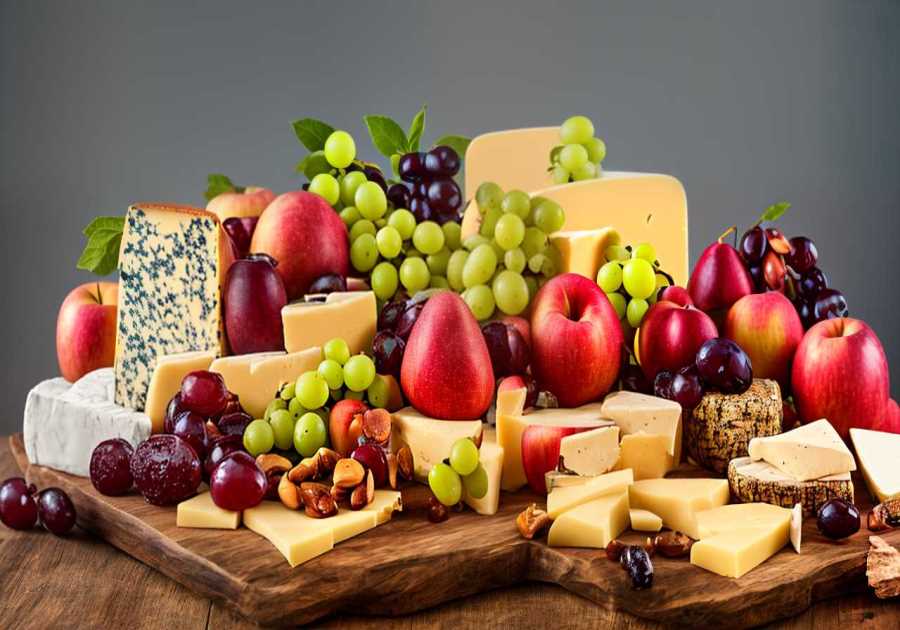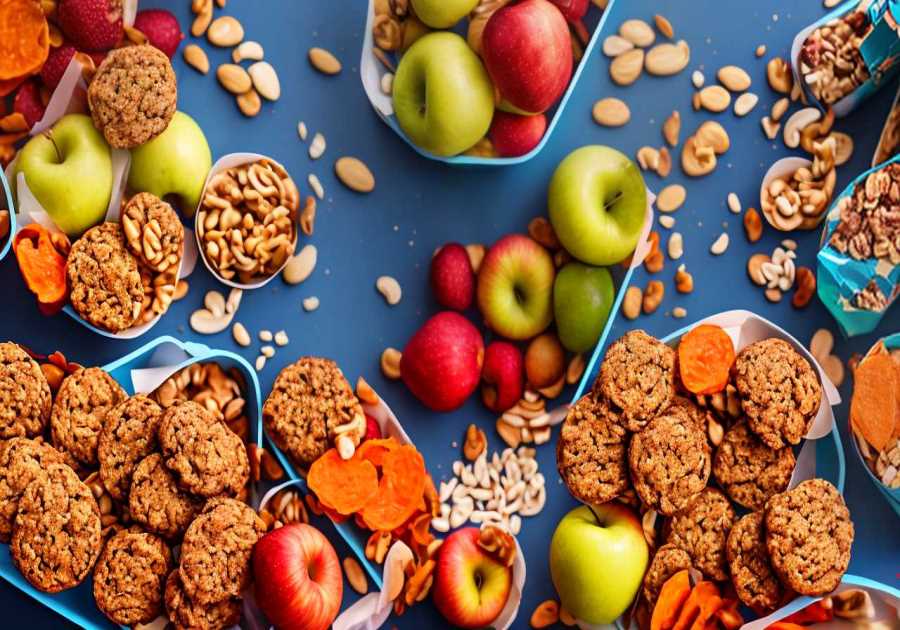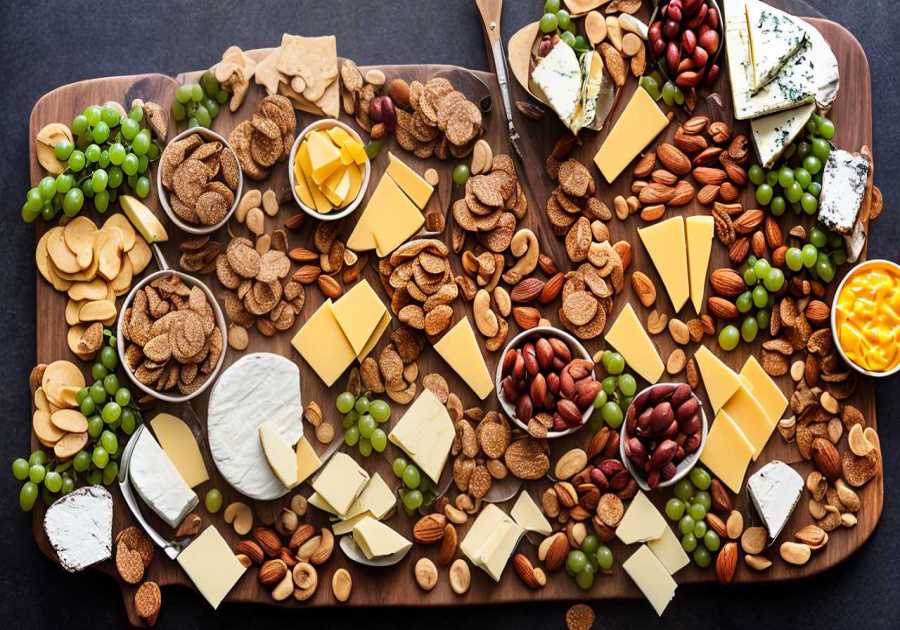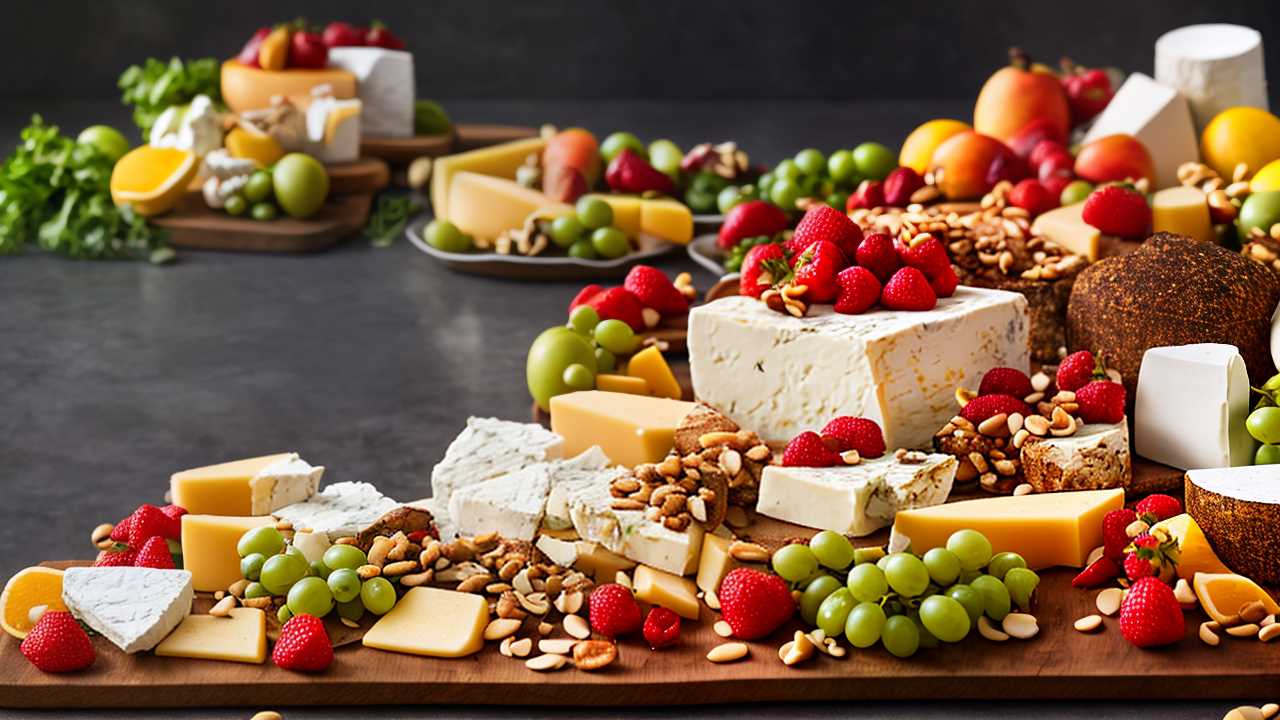
What Cheese Is Not Fattening?
If you're looking to enjoy cheese without all the fat, you're in luck. Cottage cheese and part-skim mozzarella are both excellent low-fat options, each containing under 5 grams of fat per 100 grams. Cottage cheese is exceptionally versatile, perfect for both sweet and savory dishes, whereas part-skim mozzarella, a staple in pizzas and salads, retains a delightful flavor. For a dairy-free route, consider almond or cashew-based cheeses, which offer lower calories and beneficial nutrients like vitamin E, magnesium, and heart-healthy fats, without compromising on taste. Exploring these options further could significantly enhance your meals, boosting both flavor and nutritional value.

Understanding Cheese Nutrition
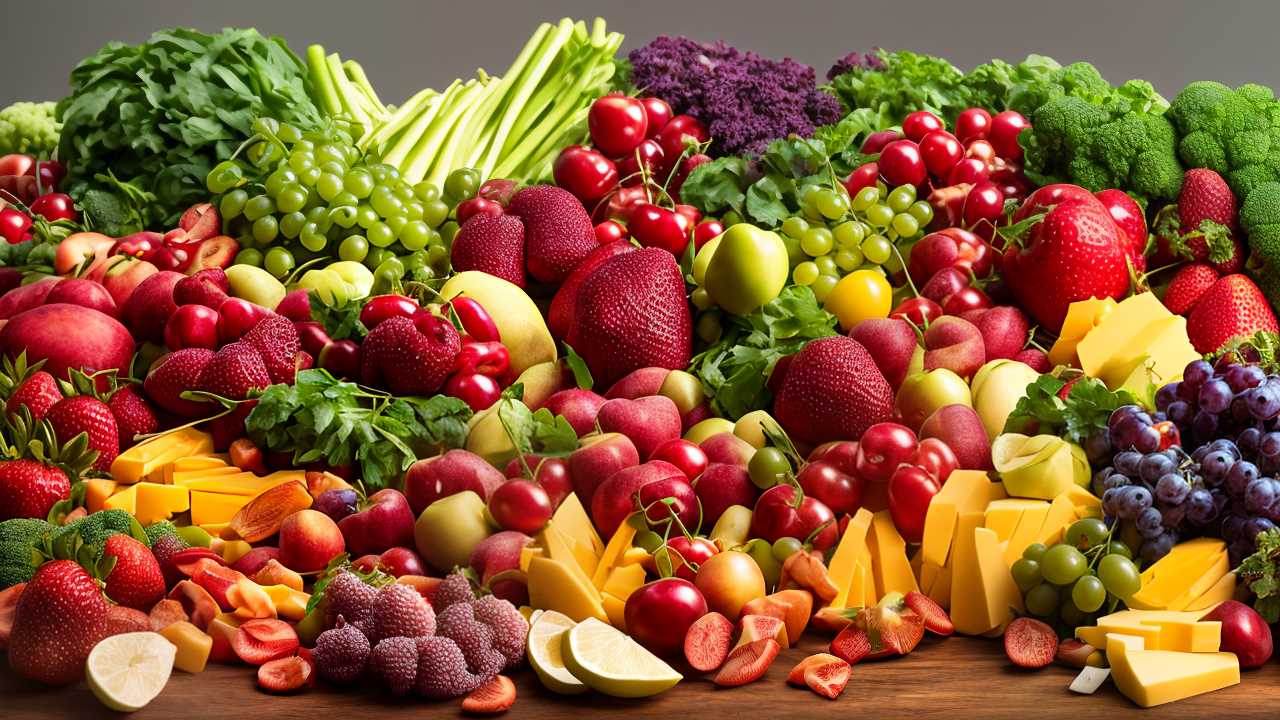
Understanding cheese nutrition is crucial when considering which types are less fattening. You want to make informed choices that serve your health and the well-being of those you care for. One effective way to manage fat intake without sacrificing flavor is to explore cheese alternatives. These alternatives often provide significant nutritional benefits while containing lower fat content than traditional cheeses.
Cheese alternatives, such as those made from nuts, seeds, or plants like coconut, offer a diverse range of nutrients. For instance, almond-based cheese isn't only lower in calories but also rich in vitamin E and magnesium. These nutrients are essential for maintaining heart health and ensuring that your body's enzymes function optimally.
Similarly, cashew cheese is celebrated for its heart-healthy fats and impressive mineral profile, including iron and calcium, which are vital for blood health and strong bones, respectively. Moreover, these alternatives often contain no cholesterol and are free from lactose, making them a suitable option for those with dietary restrictions or lactose intolerance.
By choosing these products, you're not only looking after your own health but also accommodating the diverse needs of those around you, whether it's due to health concerns or ethical choices. For those interested in gourmet quality options that are also health-conscious, premium gourmet quality products like those from CheeseButta offer both indulgence and dietary benefits.
When integrating cheese alternatives into your diet, you contribute to a more inclusive and health-conscious environment. Always check the labels to ensure you're choosing options that are low in saturated fats and sodium, thus maximizing the health benefits while keeping indulgence on the menu.
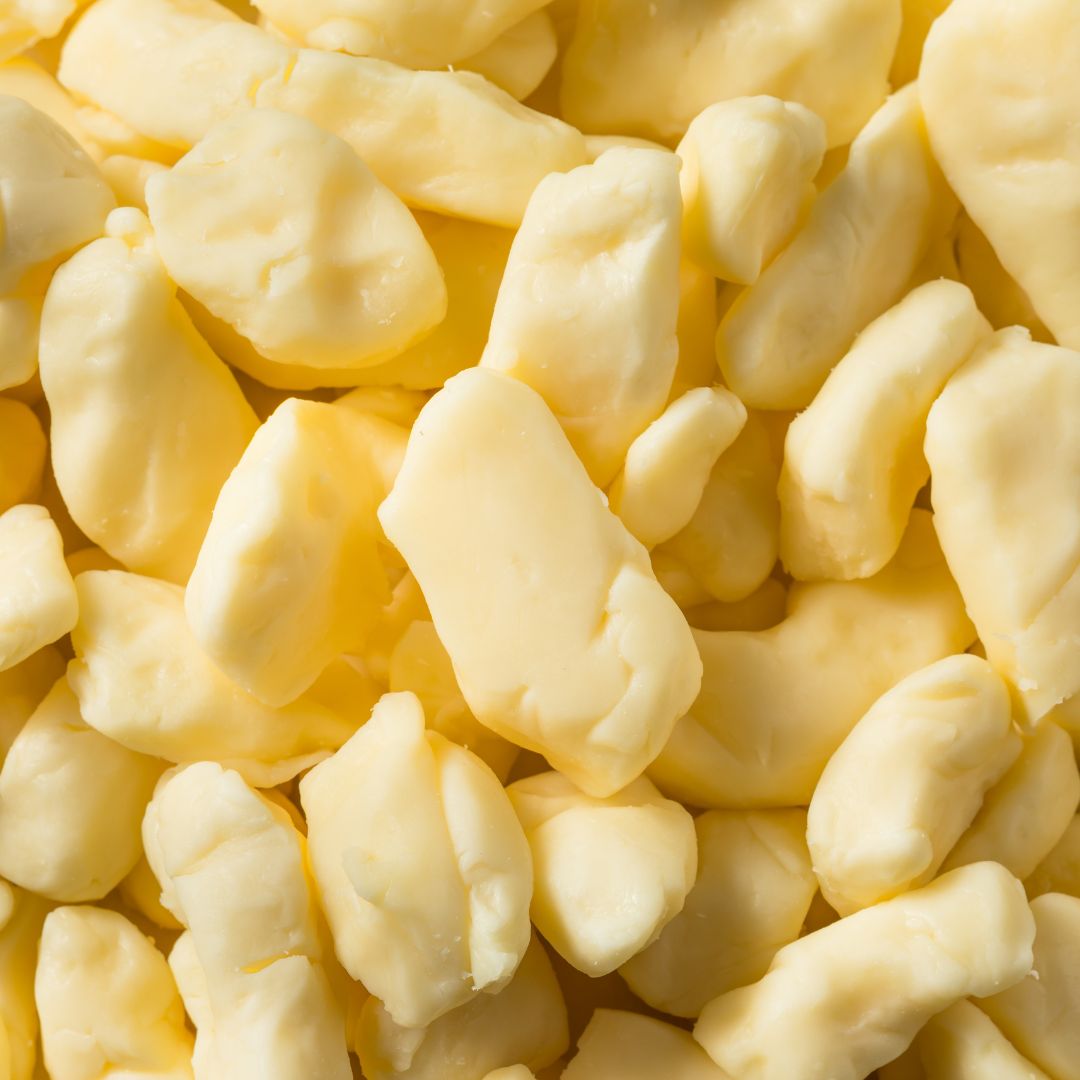
Low-Fat Cheese Varieties
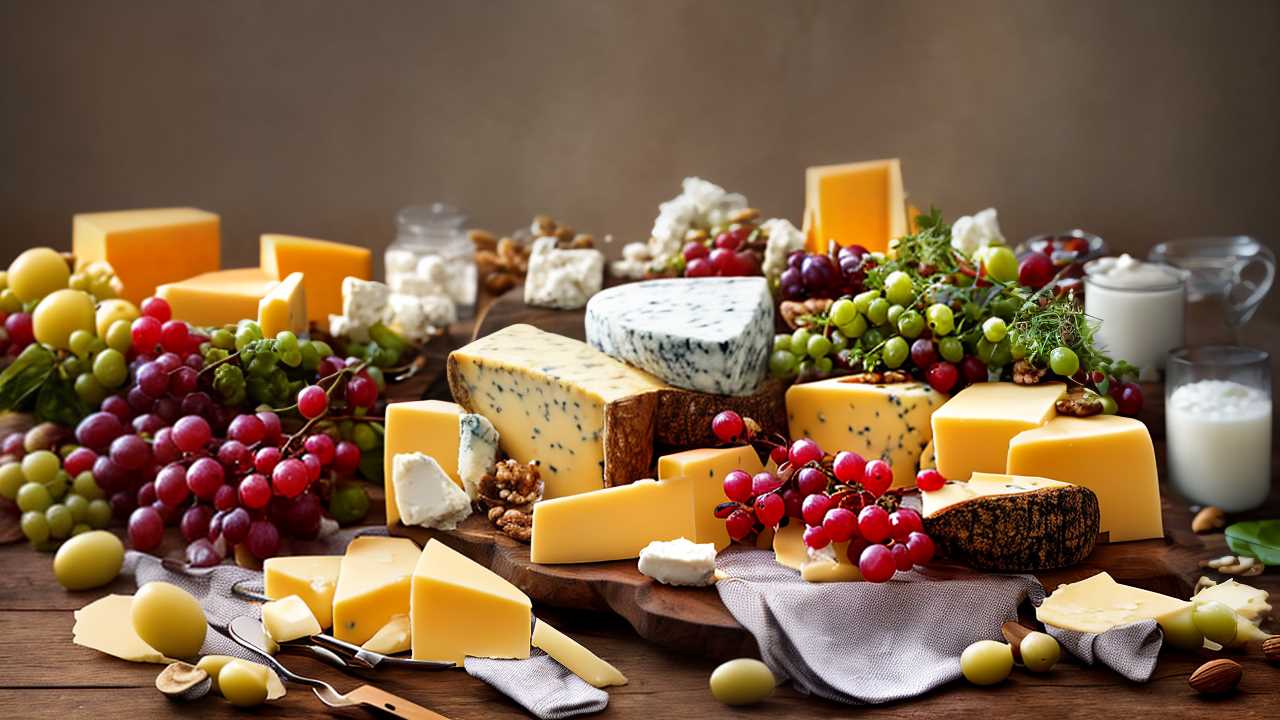
While exploring cheese alternatives can greatly benefit those looking for lower-fat options, traditional cheeses also offer a variety of low-fat choices that don't compromise on taste. If you're aiming to maintain or achieve a healthier lifestyle, consider integrating these into your diet.
Firstly, cottage cheese stands out as a remarkable low-fat alternative. Typically, it contains about 2.7 grams of fat per 100 grams, making it an excellent choice for those watching their fat intake. It's versatile, too, allowing you to incorporate it into both sweet and savory dishes without overshadowing other flavors.
Another popular option is mozzarella, especially the part-skim variety. You'll find it contains significantly less fat than its whole milk counterpart—about 4.5 grams per 100 grams. It's ideal for those who don't want to give up on cheesy delights like pizzas and caprese salads.
For those looking for a richer texture but still mindful of fat content, consider cream cheese, which is softer and creamier due to its unique production process involving a blend of milk and cream. While standard cream cheese can be higher in fat, low-fat versions are available that maintain the creamy texture and tangy flavor essential for dishes like cheesecakes and dips.
For those who are lactose intolerant or follow a vegan diet, exploring dairy-free options can be fruitful. Many plant-based cheeses are made from nuts like almonds or cashews and provide a creamy texture similar to that of traditional cheese but with lower fat content.
Furthermore, if you're fond of ricotta, consider trying ricotta alternatives made from tofu or low-fat dairy options. These substitutes generally maintain the light, fluffy texture of traditional ricotta, but with fewer calories and fats, thus aligning well with a low-fat diet plan.
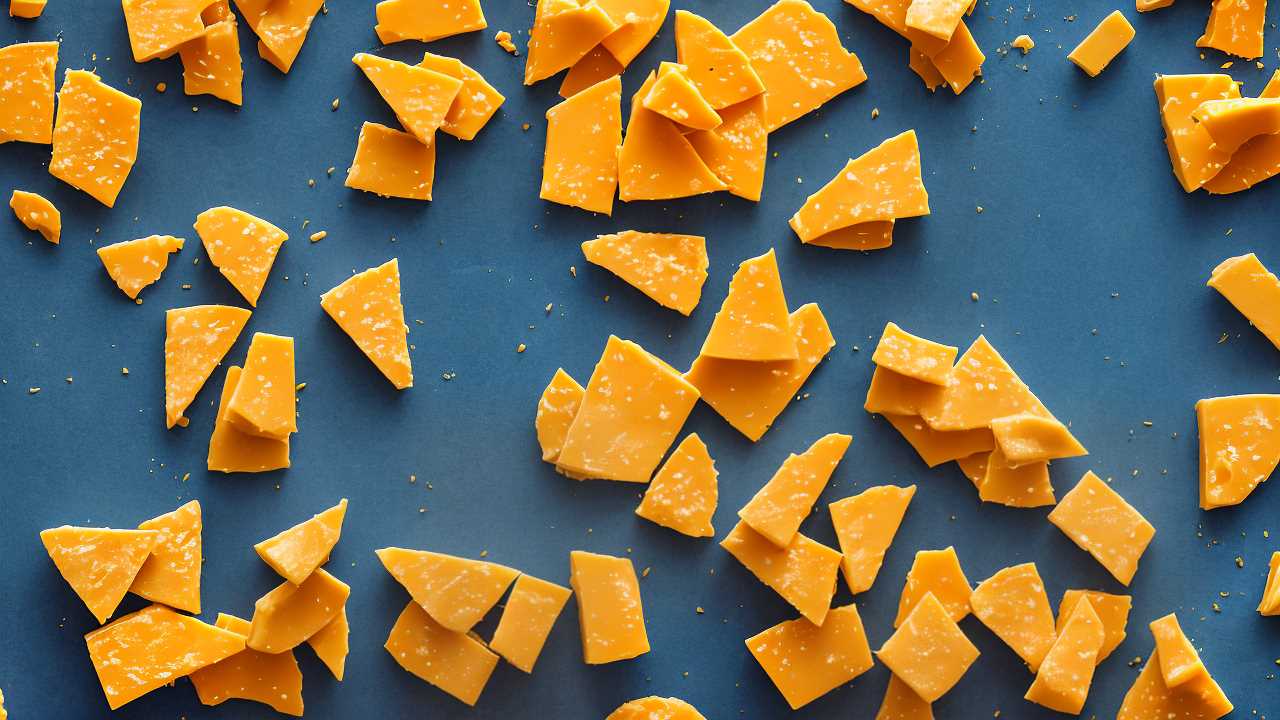
Portion Control Tips
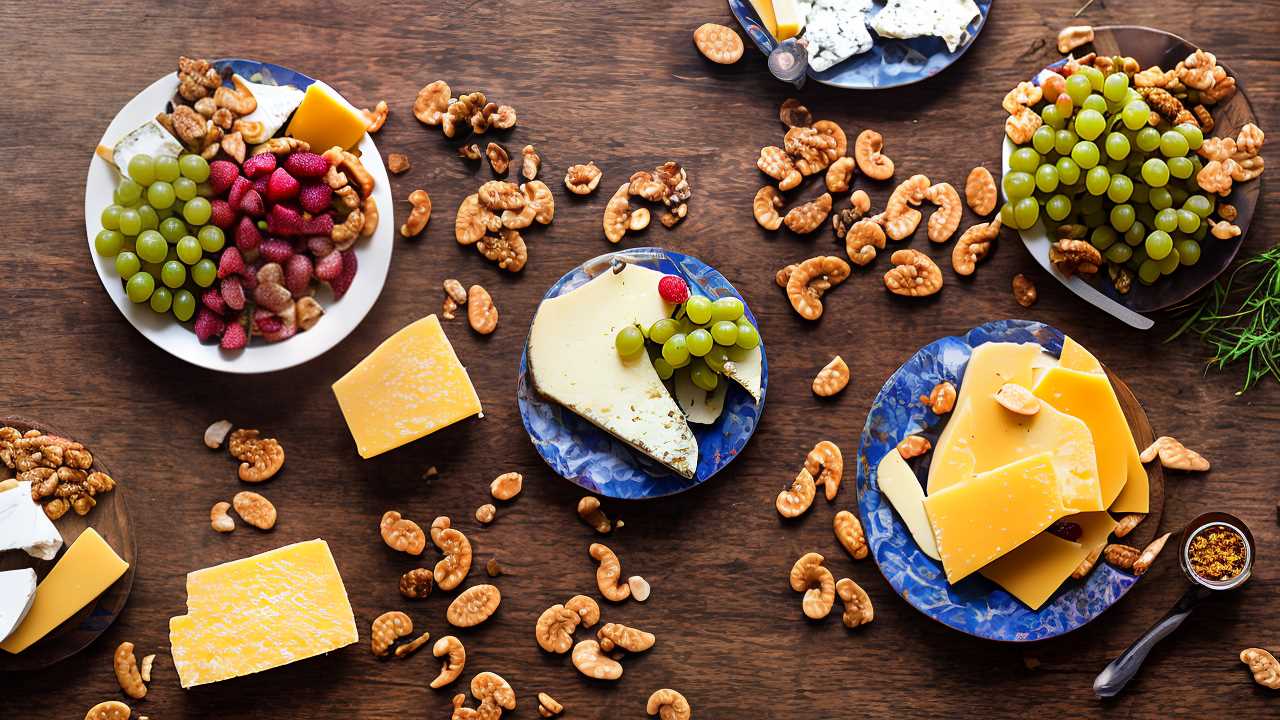
Often, managing how much cheese you eat is just as important as choosing the right type. While cheese can be a delightful addition to meals, it's easy to overindulge. Practicing portion control can significantly influence your overall health and waistline. Here are some practical tips to help you manage portions effectively.
Firstly, use cheese alternatives when possible. Products like nutritional yeast or plant-based cheese can offer a similar flavor with fewer calories and less fat. Experiment with these substitutes in recipes that call for melted or creamy cheese.
Secondly, embrace mindful eating. This means paying full attention to your eating experience. Savor the flavor of the cheese without rushing, which can help you realize when you're satisfied, reducing the likelihood of overeating.
Another tip is to pre-portion your cheese servings. Instead of bringing the entire block of cheese to the table, slice or grate it in advance, sticking to the recommended serving size—usually about an ounce. This helps prevent mindless nibbling straight from the package.
Visual cues can also be beneficial. Compare cheese portions to familiar objects. For example, an ounce of cheese is about the size of a pair of dice. Keeping this visual in mind can guide you when cutting your own portions.
Additionally, consider integrating KETO-friendly options like CheeseButta® into your diet, which aligns with low-carb lifestyles and offers a satisfying flavor without the guilt.
Lastly, store cheese properly to maintain freshness and discourage waste. If you've portioned out more than you can eat, wrap it tightly and store it in a cool place. Proper storage ensures that the cheese retains its quality, making it more enjoyable and reducing the temptation to consume larger amounts than necessary.

Pairing Cheese With Healthy Foods
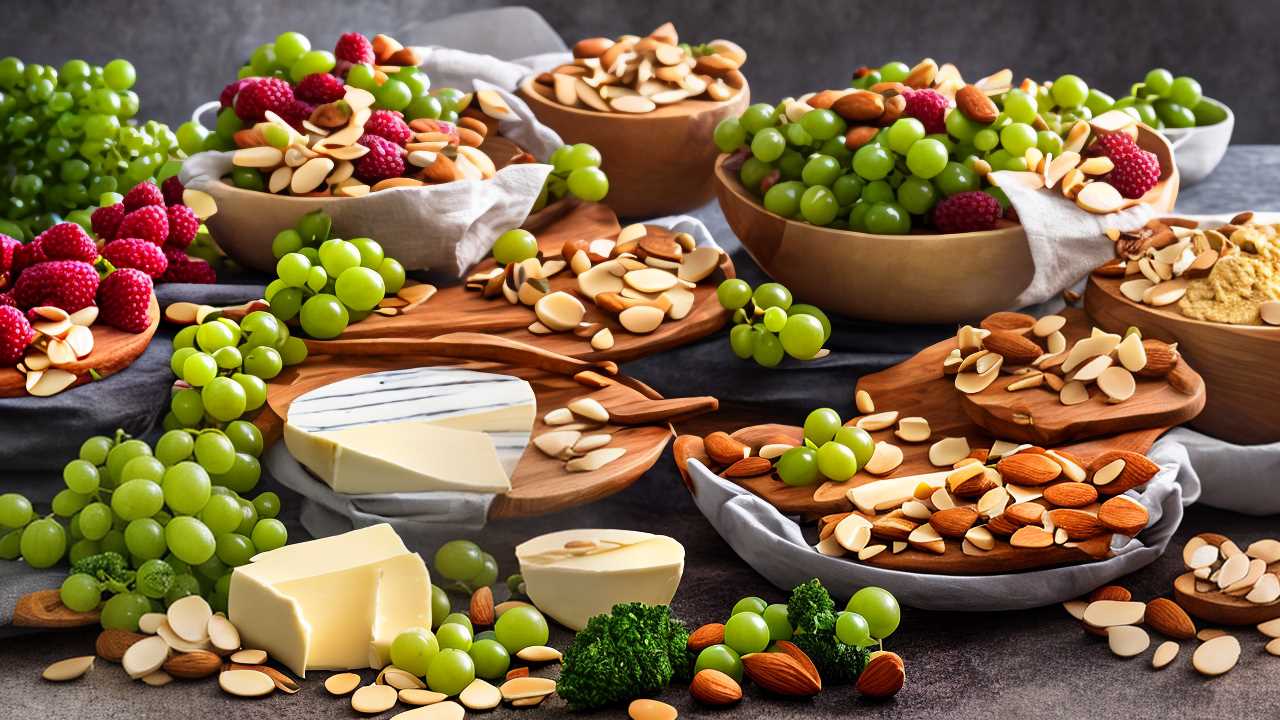
Pairing cheese with nutritious accompaniments can enhance both the health benefits and the enjoyment of your meal. When you choose to pair cheese with healthy foods, you're not just adding flavor; you're also boosting the nutritional value of your snacks and dishes.
Opt for fresh vegetables like carrots, bell peppers, and cucumbers as companions to cheese dips. These vegetables provide essential vitamins and fiber, making them perfect partners for your favorite cheeses.
For a heartier option, whole grain crackers or slices of whole wheat bread can be paired with cheese spreads. These choices offer the added benefit of complex carbohydrates and dietary fiber, which help in maintaining stable blood sugar levels and keeping you satiated longer.
This pairing not only satisfies your taste buds but also supports your body's energy needs efficiently.
If you're preparing a meal or snack for others, consider using cheeses that are lower in fat but rich in flavor, such as feta or goat cheese. You can create delightful cheese spreads by blending these cheeses with herbs and spices, then serving them with an array of fresh fruits like apple slices, pears, or grapes.
The combination of sweet fruit and savory cheese provides a balanced taste that's both appealing and nutritious.

Making Cheese a Diet Staple
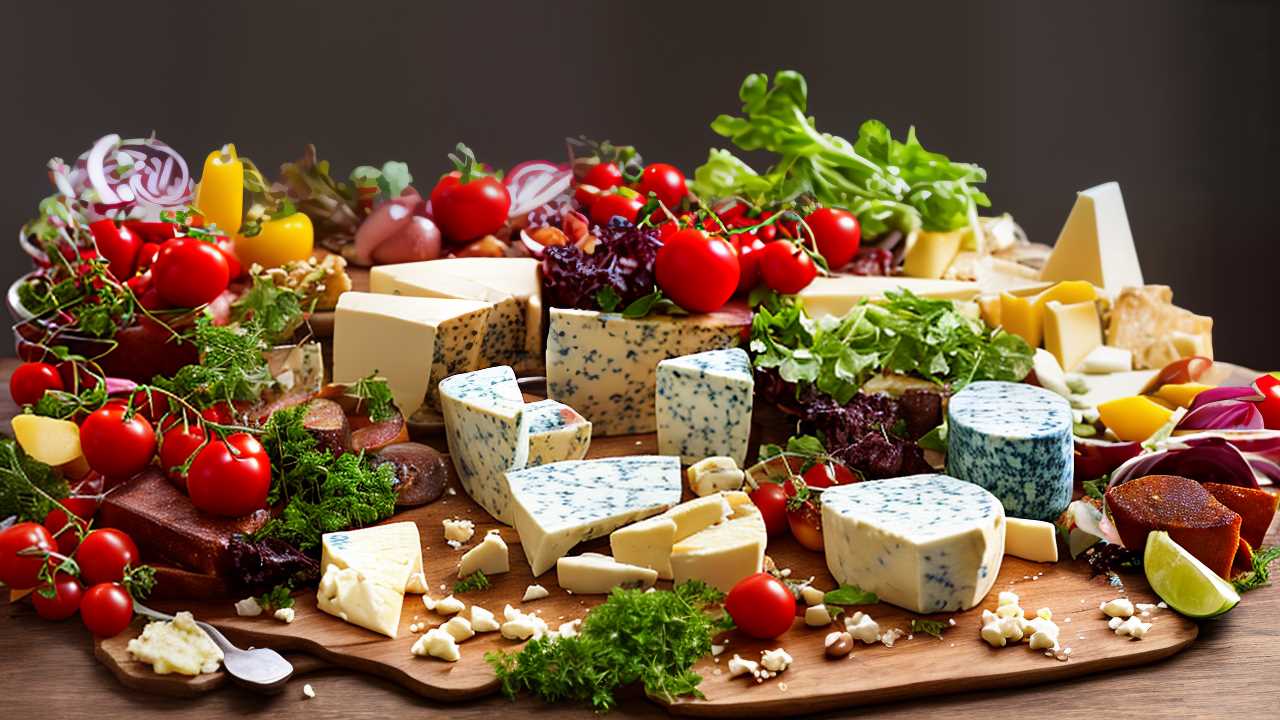
Incorporating cheese into your daily diet can be a smart strategy for enhancing your meals with nutritious, satisfying options. When you're aiming to serve others with health-conscious, delightful dishes, understanding the true benefits of cheese, and dispelling common cheese myths, is essential. Cheese isn't just a treat; it's a versatile, nutrient-rich food that can be an excellent source of calcium, protein, and essential fatty acids.
One of the enduring cheese myths is that all cheese is high in fat and, therefore, fattening. However, numerous varieties like mozzarella, ricotta, and feta are lower in fat and calories, making them ideal for a balanced diet. These cheeses provide the creamy texture and flavorful punch that can elevate a dish from simple to spectacular without adding excessive calories.
To make cheese a staple in your diet while serving others, start by incorporating it into balanced meals. For instance, a sprinkle of grated Parmesan on a roasted vegetable medley or a slice of Swiss cheese in a turkey sandwich adds flavor and nutritional value.
Be mindful of portion sizes; a small amount can go a long way in enhancing taste and texture.
Moreover, using cheese in cooking can help introduce other nutritious ingredients. Melting a bit of cheddar on a whole-grain broccoli and cauliflower bake, or tossing feta into a quinoa and cherry tomato salad, not only adds depth to these dishes but also increases their appeal.
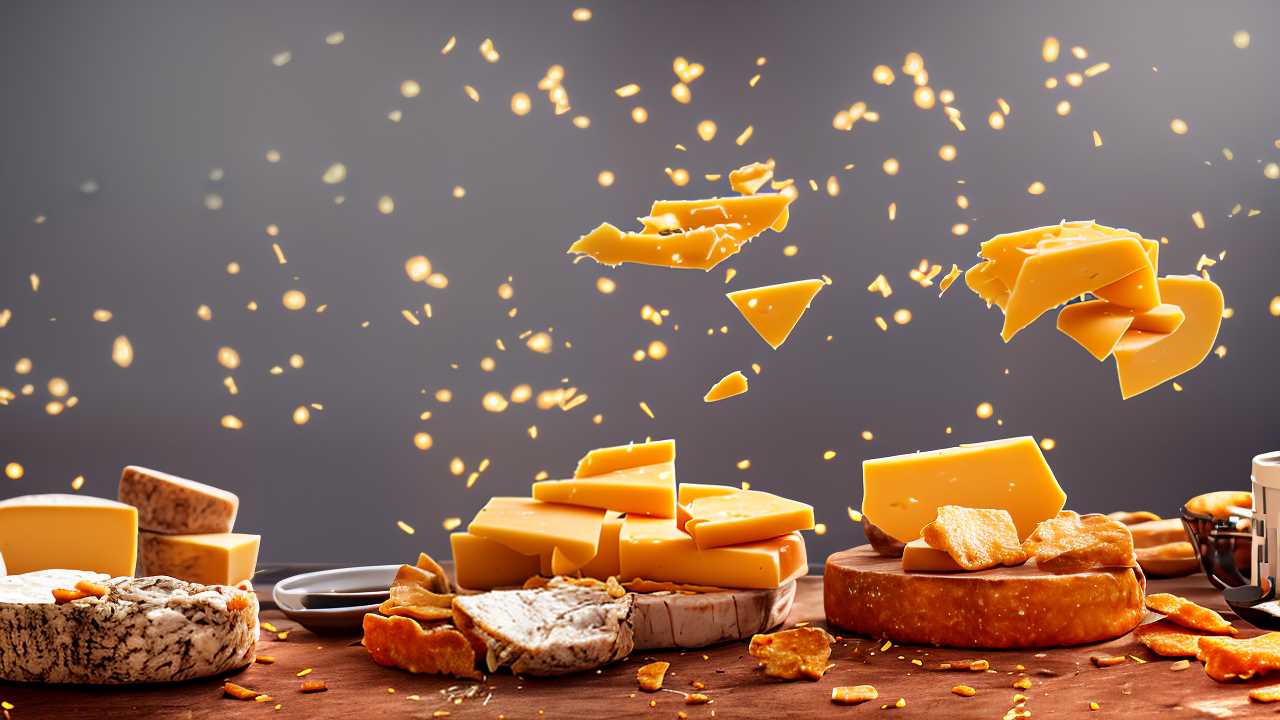
Frequently Asked Questions
Can Eating Cheese Help Improve Bone Health?
Yes, eating cheese can indeed help improve your bone health.
Rich in essential nutrients like calcium, protein, and vitamin D, cheese supports the maintenance and development of bone density.
Including cheese in your diet, especially varieties like Parmesan or cheddar, provides these vital nutrients, which are crucial for bone strength.
Remember to choose lower-fat options to balance your overall nutrient intake while still benefiting from these bone-supporting properties.
What Cheeses Are Suitable for Lactose-Intolerant Individuals?
If you're lactose-intolerant and think the cheese world has closed its doors on you, think again!
There are numerous lactose-free options and cheese alternatives that won't upset your stomach. Hard cheeses like cheddar and Swiss typically have less lactose, and there are also specially crafted lactose-free varieties available.
These alternatives ensure you can still enjoy the creamy delight of cheese without the discomfort, all while serving others who share your dietary restrictions.
Does Cheese Contribute to High Cholesterol?
When considering cheese types, it's important to know that some can raise your cholesterol levels.
Hard cheeses like Parmesan tend to have higher saturated fat, which may contribute to higher cholesterol.
Opting for softer, low-fat cheeses such as mozzarella or cottage cheese can be a healthier choice.
Always check the labels for saturated fat content and try to balance your diet to maintain healthy cholesterol levels.
Moderation is key in enjoying cheese without overloading on cholesterol.
Are There Vegan Cheese Options That Are Low in Fat?
Are you exploring healthier cheese alternatives?
Vegan cheese options like cashew cheese are low in fat and a fantastic choice. Made from nutrient-rich cashews and often fortified with nutritional yeast for that cheesy flavor, they're a heart-healthy alternative.
Nutritional yeast adds not only flavor but also vitamins and minerals.
Opting for these vegan cheeses allows you to serve both your health needs and ethical preferences effectively, without compromising on taste.
How Does Aging Affect the Fat Content of Cheese?
Aging doesn't reduce the fat content in cheese; it affects flavor and texture.
As cheese ages, moisture evaporates, and flavors concentrate, but the fat remains constant relative to the cheese's dry matter. This means that aged cheeses might seem richer or creamier, but the actual fat percentage doesn't change.

Conclusion
In the land of balanced diets, cheese stands as a versatile ally. Like a wise guide in a forest of food choices, low-fat cheeses such as mozzarella or cottage cheese light your path, not weighing you down. Remember, moderation is your compass; small portions are the steps you take. Pair your cheese with fruits and vegetables, the trees that offer sustenance and shade, transforming your meal into a harmonious journey that nourishes both body and soul.

_7.png)


